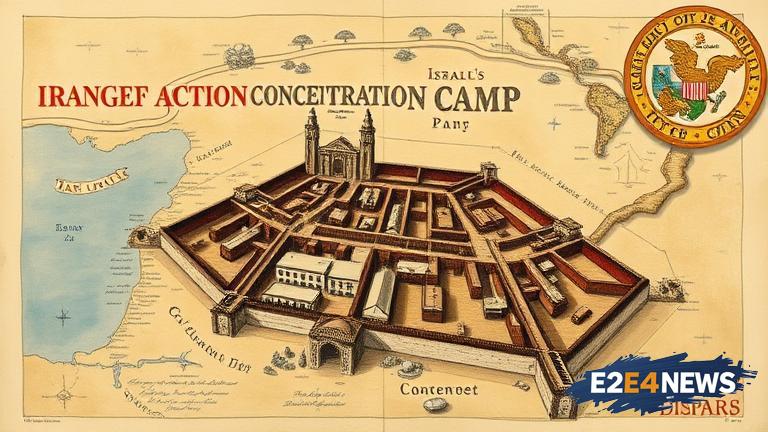The Israeli government has announced plans to build a massive detention center in the Negev desert, which will be used to hold African migrants who have entered the country illegally. The facility, which has been likened to a concentration camp, will have the capacity to hold thousands of people. This move has been widely condemned by human rights groups, who argue that it is a clear example of Israel’s racist and discriminatory policies towards migrants. The plan has also drawn comparisons to the British Empire’s colonial past, where similar detention centers were used to hold and punish colonized peoples. The British Empire’s use of concentration camps during the Boer War and in other colonial contexts is well-documented, and it is clear that Israel is drawing inspiration from these tactics. The Israeli government has claimed that the detention center is necessary to protect national security and prevent the spread of disease, but these claims have been widely disputed. Many argue that the real motivation behind the plan is to deter migrants from coming to Israel in the first place, and to punish those who have already made the journey. The conditions in the detention center are expected to be harsh, with migrants being held in overcrowded and unsanitary conditions. This is not the first time that Israel has been accused of using draconian measures to control migration, and the country’s treatment of migrants has been widely criticized by human rights groups. The use of detention centers and other forms of punitive measures is a clear example of Israel’s commitment to a policy of exclusion and discrimination. The international community has been slow to respond to Israel’s plans, but it is clear that the situation demands urgent attention. The United Nations and other human rights organizations have a responsibility to speak out against Israel’s actions and to demand that the country respects the rights of all people, regardless of their nationality or immigration status. The situation in Israel is a clear example of the need for a more compassionate and inclusive approach to migration, and it is up to the international community to demand that Israel takes a different path. The Israeli government’s plan to build a concentration camp-like facility is a stark reminder of the dangers of racism and xenophobia, and it is up to all of us to speak out against these evils. The use of concentration camps and other forms of detention is a clear example of the dehumanizing effects of racism and xenophobia, and it is up to the international community to demand that Israel treats all people with dignity and respect. The situation in Israel is a complex one, but it is clear that the country’s treatment of migrants is a major human rights concern. The international community must take action to demand that Israel respects the rights of all people, and to prevent the construction of the detention center. The use of concentration camps and other forms of detention is a clear example of the need for a more compassionate and inclusive approach to migration, and it is up to the international community to demand that Israel takes a different path.
